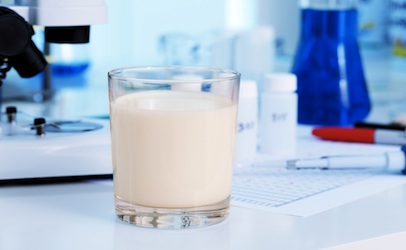
Maryland’s Department of Legislative Services says that making raw milk sales legal through individual cow-share or herd-share schemes could increase sporadic or isolated cases of illnesses from unpasteurized milk from almost none today to 100-165 per year.
In addition, the independent fiscal and policy analysis of House Bill 3 predicts raw milk-borne outbreaks in the state would double, reaching two to four per year from the current one to two per year.
Maryland is the second state bordering raw milk-exporting Pennsylvania to be considering a cow- or herd-share bill during the current legislative session. West Virginia is the other.
Maryland’s “Consumer-Owned Livestock” bill, heard two weeks ago, has not moved since the independent fiscal and policy note was issued by legislative services. It says that HB 3 exempts the sale of raw milk and raw milk products from regulations governing production, processing, labeling and distribution if the final consumer has an ownership interest in the animal or herd that produced the raw milk.
No exemption would apply to restaurant, retail, commercial, wholesale or other sales of raw milk and raw milk products to subsequent buyers.
Making raw milk sales legal through cow-share or herd-share ownership agreements would cost the state at least $66,100 in fiscal year 2015, according to fiscal estimates. That amount would pay for an additional employee to respond to increased raw milk disease outbreaks and sporadic cases.
The Maryland Association of County Health Officers told legislative services that more outbreaks would raise local costs as well. Additional cases and more outbreaks would increase costs for state laboratory services.
Under current law, Maryland prohibits selling raw milk for human consumption unless it’s used for making farmstead cheese. Milk must now be sold to processors, who pasteurize it before it can be distributed and sold to consumers.
Like West Virginia, however, raw milk does reach consumers in Maryland from neighboring Pennsylvania, where the sale of unpasteurized milk is legal and where, from time to time, the state line is not a barrier to distribution.
Raw milk policy is one of the most divisive health issues the states face. The public is divided between the vast majority who accept pasteurization as a prudent defense against a host of pathogens and the small but vocal minority who insist raw milk is antimicrobial and more nutritious than pasteurized milk.
As a result, the states are divided. Thirty of them allow raw milk sales only from on the farm to restaurants and retail stores, while the other 20 ban it for all but the farm families which own and milk the cows.
The federal Centers for Disease Control and Prevention (CDC) in Atlanta reported 148 outbreaks of disease from 1998 to 2011, causing 2,384 illnesses, 284 hospitalizations and two deaths. CDC found states that permit sales of raw milk have a higher incidence of milk product-related illnesses than those that don’t.
For its part, Maryland’s legislative services figures that each sporadic or isolated case involves eight to 16 hours of investigative time, in addition to the time and cost to state Laboratories Administration.
It was on that basis, the fiscal note stated, that additional staff should be hired if raw milk policy is liberalized in Maryland. Investigations typically involve patient interviews and the examination and processing of evidence. The estimate provided to the legislature states that 100 samples of milk tested for pathogens cost the state $10,000.
The U.S. Food and Drug Administration (FDA) warns that raw milk can contain harmful bacteria that may cause illness and death. Pathogens included E. coli O157:H7, Salmonella, Listeria, Campylobacter and Brucella. Both FDA and CDC say the health risks of raw milk far outweigh any possible benefits that the beverage may provide.
If passed by the Maryland Legislature, HB 3 would make the state the 14th to permit on-the-farm sales of raw milk. If approved, raw milk is expected to sell on the farm through share arrangements for $7 to $8 per month based on current prices paid for the product through Pennsylvania sources.





